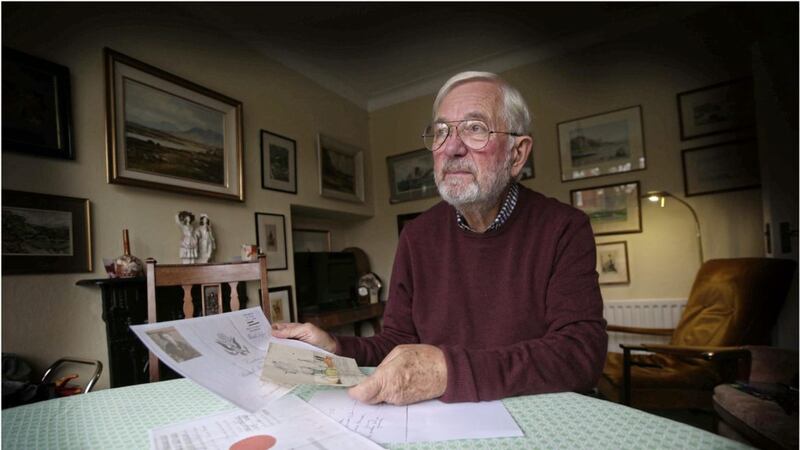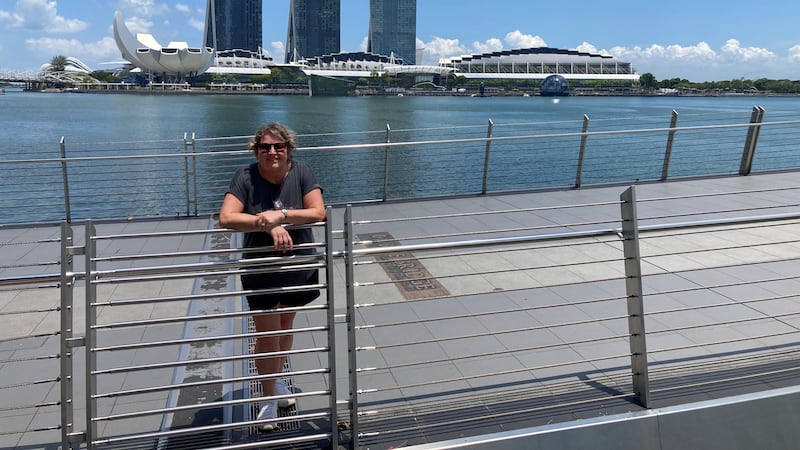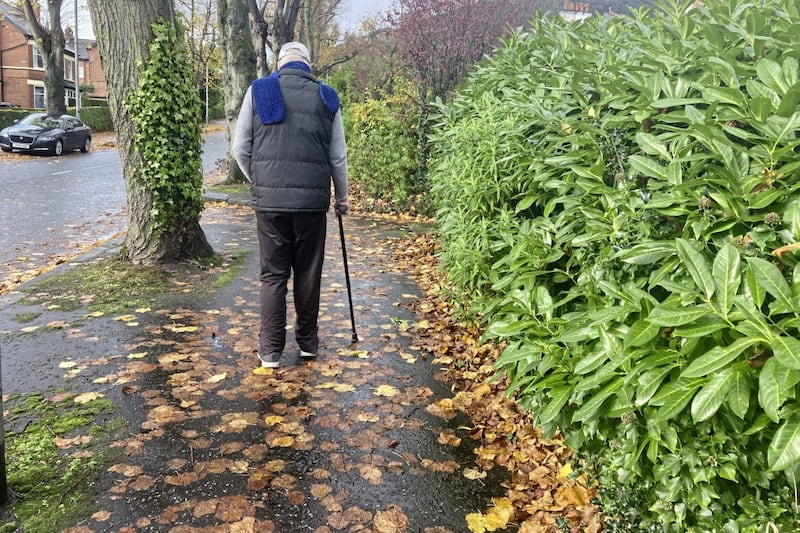THERE have been many remembrances over the weekend, stories of the bravery of men and women who served in the First World War, the astonishing and heartrending numbers of young men who perished in the trenches, drowned in the mud or died in makeshift hospitals nursed by some of the 100,000 women who joined armed forces during the war.
One of those women was Emma Duffin. Born into a well-to-do family in Stranmillis, Belfast, she attended Cheltenham Ladies College, then became an illustrator of children’s books, and you can only image her genteel life of privilege.
The family, however, also had a proud tradition of voluntary service in their community and at 31 years of age Emma, whose great-grandfather was Dr William Drennan, one of the founders of the United Irishmen, joined the Voluntary Aid Detachment to nurse desperately wounded and dying servicemen, many of them from Ireland, both north and south.
In his book The Diaries of Emma Duffin Trevor Parkhill paints a picture of the young woman; her words are moving, often angry, at times she’s happy but mostly she’s desperately sad as she and her colleagues were dealing with men who had lost limbs, suffered frostbite, trench foot, gangrene, rheumatism and gas inhalation. It was a harrowing time.
Her first posting was six months in Alexandria in Egypt where the Gallipoli wounded were nursed. In late spring of 1916 until the end of the war in November 1918 she was based in northern France, in a hospital at the port of Le Havre where she was nursing soldiers wounded on the Western Front.
At home the war offered women increased opportunities for work. Between 1914 and 1918 an estimated one million-plus women in the UK replaced men in employment, resulting in an increase in the proportion of women in total in paid employment to 37 per cent by November 1918.
Since 1918 when the armistice was signed, at 11am on 11th day of the 11th month, this day has been observed by many who pause for one minute to reflect on the 20 million who died then and many more since and for a second minute to think of these left behind, wives, children, families and the wounded.
And what of British nationals living in Germany? There were thousands of non-combatant British and Irish who were held prisoner in camps throughout Europe and one fascinating story came to light quite unexpectedly when I was talking to a friend of 50 years.
Paul Irwin worked in Ulster Television's sound department from the beginning, through the Troubles until his retirement. His grandfather William Goodman from Lisburn worked for Barbour Threads – ‘Ahead in Thread’ – at Hilden, Co Antrim, and in the late 1800s was posted to the Barbour factory in Germany. There he met and married a Swedish girl who sadly died giving birth to Paul’s mother; eventually William married again and had a second family.
When the First World War broke out, because of was living in Germany, William and his sons Harry and Jimmy were interned at Ruhleben camp, situated at a race course outside Berlin.
It is documented that prisoners there had a choice of either accepting their incarceration as a tragedy with the loss of freedom, boredom and lack of privacy, or a challenge. There must have been strong leadership among the group as they decided to take up the challenge and try to live as normal an existence as possible by forming clubs, sports teams and associations which gave something to focus on as war raged around them.
They choose to work with the German authorities and it was agreed that they would take over the administrative control of the camp and so William and his sons survived the mental and physical effects of their imprisonment.
Terrifying transfer
The other members of William’s family, including Paul’s mother, nine-year-old Paula Magdalena Frieda, were scheduled for repatriation in 1916.
When the day came the children were taken by ship into the North Sea and, in the middle of the English Channel their vessel was met by a British ship and somehow the children were transferred over the turbulent waves and swapped for German nationals being held in England.
Later they told a story of a handover that was terrifying, with bombs being dropped by Zeppelin airships and enemy submarines circling. Later one of the children drew the scene with a message written in German on the back of the page, unfortunately indecipherable.
Eventually, with very little English at the time, Paula arrived back in Lisburn where her father’s family lived. There she met her husband Billy and married in 1932.
However, even after the First World War, members of the family suffered again because of an accident of their birth. Paul’s uncle Harry worked for Barbour’s factory in Italy in the late 20s and even though he was a British citizen, as he was born in Germany he was under house arrest for the duration of the Second World War. His brother Jimmy, who worked for British Customs, married a Dutch girl, but he also was interned in northern France until, because of illness, he was repatriated in 1944.
Yesterday, Remembrance Day, Paul was thinking of his family history, his grandfather, his uncles, his mother and his own father who served in the Second World War.
“Thank God I can remember my father coming home, swinging down the road in Lisburn with his kitbag and his heavy army greatcoat. I was waiting for him in the garden and I remember so well how he handed me a billycan filled with chocolate to share with my brother and my cousin. In both wars we were the fortunate ones.”
Thankfully there are those of us who can echo those words.
:: The First World War Diaries of Emma Duffin, by Trevor Parkhill, is published by Four Courts Press, priced £24.99.









